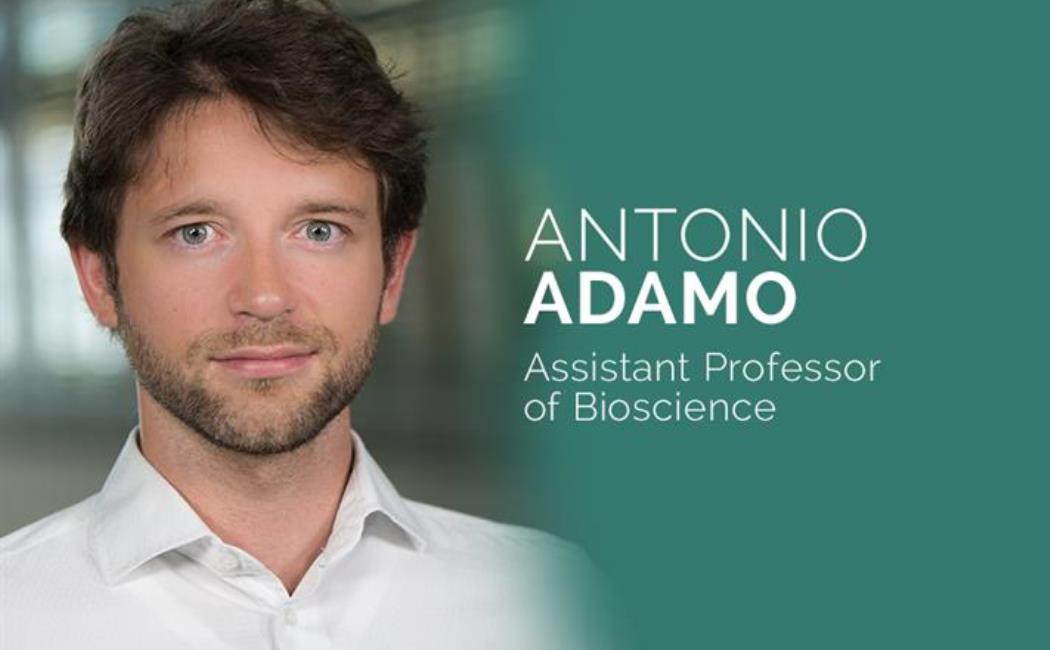
Welcome Professor Antonio Adamo
20 April, 2015
We have recently welcomed a new Assistant Professor of Bioscience: Professor Antonio Adamo. Before joining KAUST Professor Adamo was a FEBS senior postdoctoral fellow at the European Institute of Oncology in Milan, Italy. Prior to this he worked as a postdoctoral researcher in Juan Carlos Izpisua-Belmonte’s lab at the Center of Regenerative Medicine of Barcelona (CMRB). Professor Adamo received his Ph.D. in Biotechnologies applied to Medical Sciences from the University of Milan in 2008.
We asked Professor Adamo a few questions about his research, which is very much related to metabolic disorders that affect the world today. He also discussed the amazing opportunities to develop his reaseach at KAUST and the potential collaborations with other faculty members and research groups. The BESE Division is very happy to welcome Professor Adamo.
What are your research interests?
The modern society is afflicted by a pandemic increase in metabolic disorders such as diabetes mellitus, obesity and insulin resistance. This correlates with an increased incidence of cardiovascular diseases and consequently impacts on patients’ lives as well as on national healthcare systems. Thus, the understanding of the molecular mechanisms driving metabolic response in both physiologic and pathologic conditions has become an inescapable must to develop new therapeutic strategies.
My research aims to shed light on the transcriptional and epigenetic mechanisms that govern the onset and the progression of metabolic disorders. To pursue this goal my team applies a multidisciplinary approach coupling the most advanced cellular and molecular biology protocols. In particular, we use the revolutionary reprogramming technique to derive induced pluripotent stem cells (iPSCs) from somatic cells obtained from patients and healthy donors. The advantages of this approach are two-fold: first, it allows to model “in a dish” the progression of the metabolic disorders during differentiation of iPSCs towards glucose sensitive cell types hence circumventing the need of animal models; second, it provides a cellular platform suitable to test the capability of iPSC-derived glucose sensitive cell types to respond to different stimuli such as glucose hyper stimulation and withdrawal.
In the long-term, the generated cellular models will be used to derive a platform for the screening and identification of small molecules able to treat the pathological metabolic phenotypes and to explore new therapeutic strategies based on the use of these cells for regenerative medicine approaches.
What motivated you to come to KAUST and the BESE Division?
KAUST is an innovative and multicultural university promoting a new model of scientific society devoted to explore the edges of knowledge. More than 100 nationalities are represented at KAUST resulting in a unique environment that exposes faculty, students and staff to discussion, debate and collaborations. The Bioscience division counts top-ranking scientists trained in the most prestigious universities and favors the establishment of an interdisciplinary approach encouraging the interaction of young and senior scientists with expertise in different biological fields. I believe this unique environment is a perfect soil for new ideas to emerge and it is a great opportunity to be part of this project.
What makes your research relevant to the Division and the Kingdom?
Diabetes mellitus, insulin resistance and obesity are dramatically increasing in developed countries with a particular peak of incidence in the Kingdom of Saudi Arabia. Thus, the understanding of the environmental, epigenetic and transcriptional basis of such disorders is a theme of great interest for the division. My research will contribute to the current knowledge of the molecular mechanisms driving metabolic diseases. Importantly, the use of patient-derived stem cells to model the progression of complex disorders in vitro is undoubtedly among the most promising approaches for exploring new therapeutic frontiers and a first step towards the establishment of personalized therapeutic protocols.
One of the pleasures of scientific research is discovering the unknown, what drives you to discovery?
No doubts: curiosity to understand how Nature works! Since my childhood I have always been very curious and intimately amazed by the perfection that surrounds us at every scale: the universe, the earth, the human being, the cell, the atom. For every small piece of discovery we make, new chapters of the Life-book are written, and more deep secrets are unveiled. The understanding of ‘the Nature of things’ is the key of progress and it would be a great honor to give my contribution.